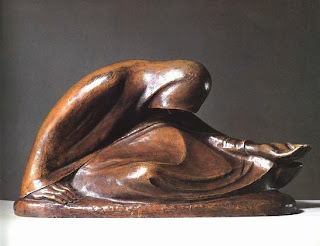 hour - The Proto-Indo-European root for year came down through the Germanic branch of the family to become our word year. But in the Greek to Latin to French branch it shifted meaning and ultimately became our word hour. Slight difference! An hour was a variable period of time for centuries, and even when it was first applied to the twelfth part of a day (sunrise to sunset), it wasn’t a fixed amount of time, because the amount of daylight sunrise to sunset wasn’t a fixed amount of time. Fixed-length hours were invented in the fourth century, but right up until the sixteenth century people sometimes referred to “temporary hours,” meaning the division of the day that changed with the seasons.
hour - The Proto-Indo-European root for year came down through the Germanic branch of the family to become our word year. But in the Greek to Latin to French branch it shifted meaning and ultimately became our word hour. Slight difference! An hour was a variable period of time for centuries, and even when it was first applied to the twelfth part of a day (sunrise to sunset), it wasn’t a fixed amount of time, because the amount of daylight sunrise to sunset wasn’t a fixed amount of time. Fixed-length hours were invented in the fourth century, but right up until the sixteenth century people sometimes referred to “temporary hours,” meaning the division of the day that changed with the seasons. October - October is another word that came loose from its etymological moorings. As most people recognize, its Latin root means the number eight. That’s because it was the eighth month in the old Roman calendar, which began in March. (You can still see the seven in September, the nine in November, and the ten in December, too.) The switch to the Julian calendar in 46-5BCE moved the start of the new year back two months, leaving the month names looking a little silly.
October - October is another word that came loose from its etymological moorings. As most people recognize, its Latin root means the number eight. That’s because it was the eighth month in the old Roman calendar, which began in March. (You can still see the seven in September, the nine in November, and the ten in December, too.) The switch to the Julian calendar in 46-5BCE moved the start of the new year back two months, leaving the month names looking a little silly.
[Pictures: Astronomical clock in Uppsala Cathedral, wood block print from History of the Nordic Peoples by Olaus Magnus, 1555 (Image from Wikimedia Commons);
 October, woodcut pictures and metalcut text (?) by Jean Perreal, from a Book of Hours by the printer Simon Vostre, 1513 (Image from Griffon’s).]
October, woodcut pictures and metalcut text (?) by Jean Perreal, from a Book of Hours by the printer Simon Vostre, 1513 (Image from Griffon’s).]NOTICE!
This weekend I'll be at Roslindale Open Studios, the biggest show I do each year. Come out and see a huge variety of art!


















